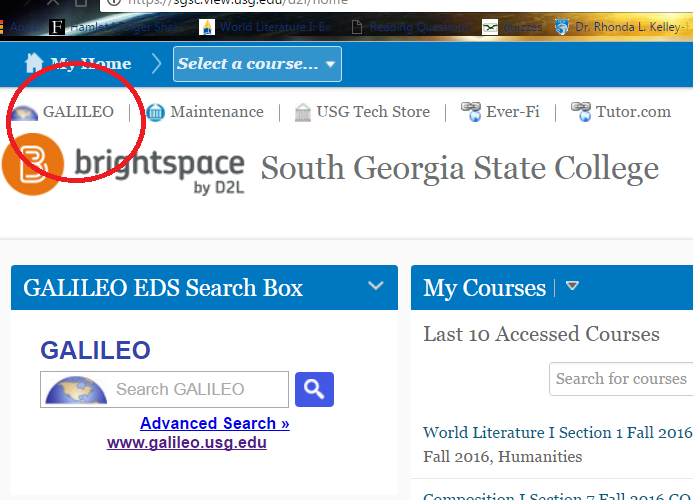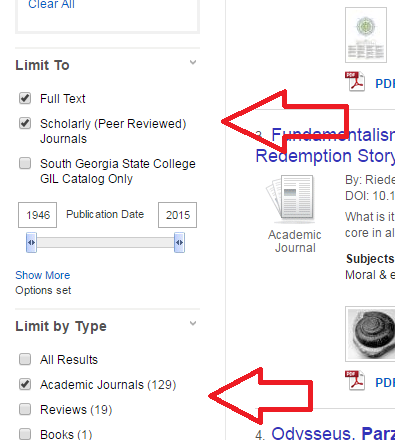
Instructions
Definitions:
- A "Bibliography" is an old-fashioned term for a "Works Cited" page.
- A "bibliographic entry" is the basic information you provide about each
work you cite.
- Example:
- Burgwinkle, William. "Knighting the
Classical Hero: Homo/Hetero Affectivity in Eneas." Exemplaria
5.1 (1993): 1-43. Literary Reference Center. Web. 30 Mar.
2015.
- n.b. Titles of Journals, books, plays, and
long poems (like epics or sagas) are italicized or underlined.
Titles of articles, songs, and short poems are put in "quotations
marks."
- "Annotated" means "with notes"; in this case it means that you have
added your notes to a bibliographic entry.
The Individual Annotated Bibliography Entry:
- You MUST use Galileo to find articles
(see Galileo Search Instructions below)
- You will need to find one scholarly, peer-reviewed,
journal article about one of the text choices mentioned in the assignment.
- Read the article.
- Create a bibliographic entry for the
article (see above)
- Summarize the article:
- one paragraph
- in your own words
- Analyze the article:
- one paragraph
- your opinion about article
Galileo Search Instructions
- Go to Galileo
- Go to
SGSC Main
Library Web Page
- Click on
"GALILEO - Find Articles and More"
- From a campus computer you will have full access to Galileo
- You can also access Galileo directly from
D2L/GeorgiaView

- Search by "Keyword" for your topic
- On the Results Page in the Left Margin ...
- Under "Limit To" click on "Full Text" and "Scholarly (Peer
Reviewed)"
- Under "Limit by Type" click on "Academic
Journals"

Citation Help
- Son of Citation Machine: A
website that generates the citation for you. BEWARE! If you do not input the
information exactly the citation may be off.
- Galileo will write your citation for you. Just copy and paste (note this
is the only circumstance in which I will tell you to copy and paste):







